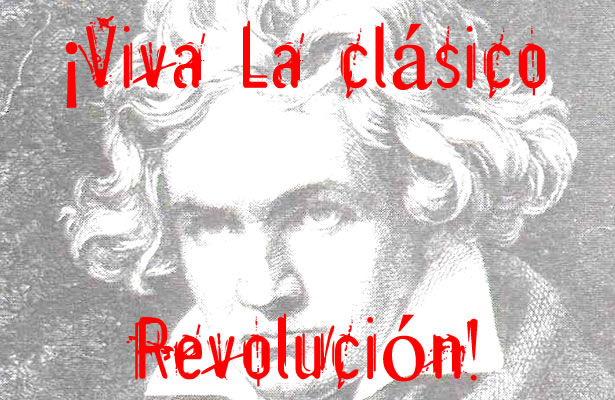
Later this week, Chicago will host a revolution.
On November 12, 2006 – in a little place called Revolution Cafe in San Francicso – the organization Classical Revolution was founded. Since that time, that group has grown to over 30 chapters across the United States, Canada and Europe in pursuit of a singular mission – to bring live chamber music to neighborhoods and make it an open, accessible, and fun musical experience for the community.
This week represents a major step for this growing organization. From Friday through Sunday (April 27-29), chapter leaders and guest presenters from 16 Classical Revolution chapters will come together in Chicago for their first group conference. During the three-day event, these leaders will engage in seminar sessions, public performances, and youth outreach programs. The goal of this conference is to strategize on how to continue building solidarity among all Classical Revolution chapters and promote chamber music in existing and future markets.
Though classical music departments in colleges and conservatories have long avoided the concept of entrepreneurship, that avoidance factor is gradually diminishing. However, classical musicians in the world beyond training centers have long explored their options with a special focus on developing new audiences. Sometimes that means playing in new venues and other times it means taking a different approach to repertoire but, in all cases, it requires an entrepreneurial spirit to make it work.
Though an entrepreneur is typically defined as someone who takes on the risks of starting a new business, entrepreneurship today often has an additional meaning of the creation of new approaches to business. For classical musicians, whose only business training tends to be limited to how to get an orchestra gig or how to write a grant for a nonprofit endeavor, the various meanings associated with entrepreneurship tend to not enter the picture.
However, that disconnection from the world beyond the academy is gradually being erased by the efforts of such teachers as Greg Sandow, who includes business topics in his class Classical Music In An Age of Pop and cites multiple music programs developing coursework in entrepreneurship in an article for The Julliard Journal Online…
…A recent piece in The Economist on classical musicians as entrepreneurs focused on performances in alternative environments. The examples include Classical Revolution’s “chamber music for the people” holding “casual concerts in bars and coffee shops.” Classical Revolution was founded in San Francisco and now boasts at least 35 chapters in the U.S. and Europe as well as an emerging record label and an international conference.
Read the full article for more on classical musician entrepreneurs.
For more information on Classical Revolution and the conference, visit their website.














No comments yet.